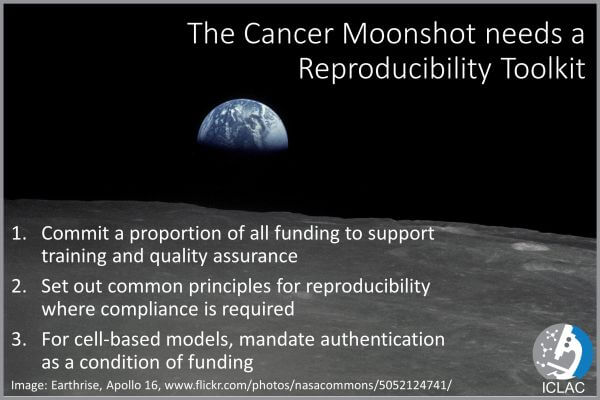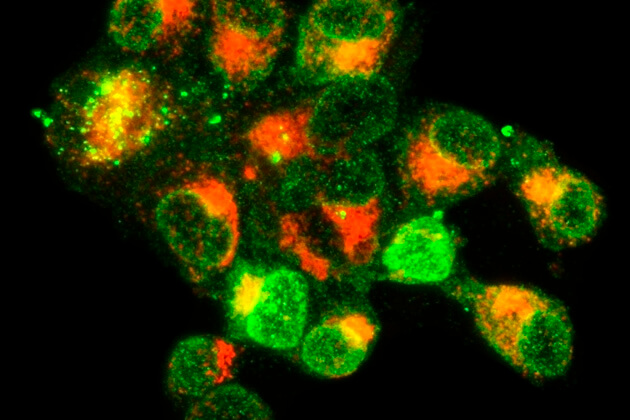In May 2016, ICLAC wrote a letter to US Vice President Joe Biden and the National Cancer Advisory Board, urging that common principles and requirements are adopted for training and quality assurance testing of research materials.
Download a copy of ICLAC’s Cancer Moonshot letter here.
What do Cancer and the Moon have in common?
Commentators have described the Cancer Moonshot as a shopworn metaphor, based on an outmoded view of the disease that is too simplistic to be successful.
What these commentators miss is that we can learn a great deal from the race to the Moon and apply those lessons to cancer research.
When President Kennedy announced the race to the Moon, NASA had enormous challenges to overcome.
The organization had insufficient funding and manpower to accomplish a mission to the Moon in the stated time.
NASA had to meld disparate institutional cultures and approaches into an inclusive organization moving along a single unified path.
Project Apollo: a Retrospective Analysis
NASA made the decision to work with external organizations, but many of its scientists and engineers were concerned that problems with quality and reliability would compromise the success of the mission.
A solution was proposed, known as the 10 percent rule:
10 percent of all funding for NASA was to be spent to ensure in-house expertise and in the process check contractor reliability.
Project Apollo: a Retrospective Analysis
NASA set quality and reliability benchmarks, using industry standards wherever possible, to ensure that component failure levels were low.
These quality and reliability benchmarks were essential for the safety and success of the Apollo landings.
Cancer Research needs a Reproducibility Toolkit
Like the race to the Moon, the race to cure cancer is a collaborative effort, with many organizations working on different pieces of a complex puzzle.
Research “silos” can develop where scientists document and perform studies in various ways, resulting in problems with research quality and reliability that are not consistently addressed.
The problem of cross-contamination and misidentification of cell lines continues to cast a shadow over published research with cell culture.
Cell lines and other biological materials can help us to understand cancer and develop new treatments, but the quality and reliability of materials vary from one laboratory to another, and many are unsuitable for ongoing use.
Cell lines need to be well documented and tested to ensure they are fit for purpose, but because training also varies from one laboratory to another, many scientists are not aware of the need for testing.
ICLAC’s letter urges the Cancer Moonshot Task Force to develop a Reproducibility Toolkit to set consistent benchmarks for cancer research.
For more information on authentication, please refer to our Resources and Community Reading pages.


















